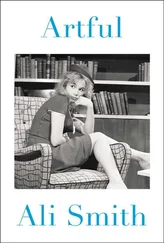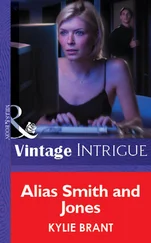She and her mother and Henry stand on an old historic staircase with the other people, above two tall sign boards which say on them TALKING WALLS (you can download a walking tour from each board and one will tell you about where a film director her mother likes grew up, and the other about Giorgio someone, her mother says a novelist who lived here in the past). It is so loud, the rehearsal, that it literally shakes these boards.
But George watches a dog cross the square through the noise and stop to sniff at something then amble off again as if nothing unusual is happening, so maybe something like this just happens here every week. Then, above the heads of everyone in the city, above the highest-tossed of the flags, church bells here and there announce midnight and as if they’ve been enchanted the next team after that to do a routine does it without drums and bugles but with its musicians humming instead, in tuneful voices and with a gentleness that seems sweet and absurd after the great din of the teams that have gone before.
If only all ceremonials and pomp got hummed like that, her mother says.
Do you remember when
Things were really hummin’.
Full stop.
Is her mother really dead? Is it an elaborate hoax? (All hoaxes, on TV and the radio and in the papers and online, are described as elaborate whether they’re elaborate or not.) Has someone elaborately, or not, spirited her mother away like on an episode of Spooks and now she’s living a life elsewhere under a new name and just isn’t allowed to contact people (even her own children) from her former life?
Because how can someone just vanish?
George had seen her contorted in the hospital bed. Her skin had changed colour and was covered in weals. She could hardly speak. What she did say, in the last part of whatever was happening to her and before they put George outside the door to wait in the corridor, was that she was a book, I’m an open book, she said. Though it was also equally possible that what she’d said was that she was an un open book.
I a a u opn ook.
George (to Mrs Rock): I’m going to tell you this thing, and I think after I tell you you’ll suggest I get sent for a stronger type of therapy than the kind you’re giving me because you’ll think I’m completely paranoid and hysterical.
Mrs Rock: You think I’ll think you’re paranoid and hysterical?
George: Yes. But I want to tell you now, before I say it, that I’m neither paranoid nor hysterical, though ostensibly it might sound like I am, and I want to make it clear that I thought it way before my mother died, and so did she, she thought it herself.
Mrs Rock nodded to let George know she was listening.
What George told Mrs Rock then was that her mother was under surveillance and had been being monitored by spies.
Mrs Rock: You believe your mother was being monitored by spies?
That was what counsellors were trained to do, to say back to you what it was you said, but in the form of a question so you could ask yourself why you’d thought or said it. It was soul-destroying.
George told Mrs Rock anyway. She told her about the time five years ago that her mother was walking past the big glass windows of an expensive and stylish hotel in central London. People were having supper in there; the windows were restaurant windows, and her mother had seen, sitting with a group of people quite prominently in one of the windows, a politician or spin person and at this point her mother had been furious at some politicians. George couldn’t remember which politician it was in the window, only that it was one of the politicians or spin people her mother held responsible for something. Anyway her mother had got her lip salve out of her rucksack and then she’d started to write on the glass of the window with the lip salve above this man’s head like a halo (that’s how she described it).
She was writing the word LIAR. But by the time it took to write the L, the I and the A, George said, there were security people coming at her from several directions. So she legged it. (Her words.)
Mrs Rock was writing things down.
After that, George said, two things happened. Well, three. Mail that came to our house for my parents, and even for me and for Henry, it was around the time when he had a birthday, began arriving looking like it had already been opened. It would arrive in these see-through Sorry Your Mail Has Been Damaged bags that the mail people use if something gets ripped. And then someone revealed in the papers that my mother was one of the Subvert interventionists.
One of the what? Mrs Rock said.
George explained about the Subvert movement and how, by using really early pop-up technology pretty much before anyone else was, they’d been able to make things appear on whatever page someone accessed like adverts do now all the time. Except, a Subvert took the form of a random visual or a piece of information.
My mother was one of the original anonymous four people who made up the things to send out, George said. Eventually there were hundreds of them. She was kind of minor to start with, then she got more minor. It’s actually really hilarious because she’s completely computer illiterate. I mean, you know, was.
Mrs Rock nodded.
Anyway, it was her job to subvert political things with art things, and to subvert art things with political things. Like, a box would flash up on a page about Picasso and it would say did you know that 13 million people in the UK are living below the poverty line. Or a box would flash up on a politics page and it would have a picture in it or some stanzas of a poem, stuff like that. Then it got revealed in the papers, George said, that she was a part of the Subvert movement, and then after that, whenever she published anything in the papers about money or economics, the people who disagreed with her called her gauche and politically partisan.
Inside George’s head as she says this her mother is laughing out loud about being called politically partisan. There isn’t a single person in this world who isn’t it, she says. She says it exactly as if she’s singing a pretty tune, tra la la. And gauche, she says, is one of my favourite words. Always be gauche, George. Go on. I dare you.
Mrs Rock: And what was the third thing that made you think your mother was being monitored by spies?
[Enter Lisa Goliard]
George: Oh no, nothing. There were only the two things.
Mrs Rock: Didn’t you say there were two, but then change it to three?
George: For a minute I think I thought there were three. But then I realized I really meant two.
Mrs Rock: And these are the two things that mean you believe your mother was being monitored by spies?
George: Yes.
Mrs Rock: And your mother believed it too?
George: She knew she was.
Mrs Rock: You think she knew she was?
George: We talked about it. All the time. It was a kind of a running joke. Anyway, she quite liked it. She liked being watched.
Mrs Rock: You think your mother liked being watched?
George: You think I’m insane, don’t you? You think I’m just making it all up.
Mrs Rock: You’re worried that I think you’re making it up?
George: I’m not making any of it up.
Mrs Rock: Is what I think, or others think, very important to you?
George: Yeah, but what do you think, Mrs Rock? Are you thinking right now, dear me, this girl needs to be sent for much heavier-duty therapy?
Mrs Rock: Do you want to be sent for ‘much heavier-duty therapy’?
George: I’m just asking you to tell me what you think, Mrs Rock.
Then Mrs Rock did something unexpected. She departed from her usual technique and script and started telling George what she actually maybe thought.
She said that in the ancient times the word mystery meant something we’re unused to now. The word itself
Читать дальше












